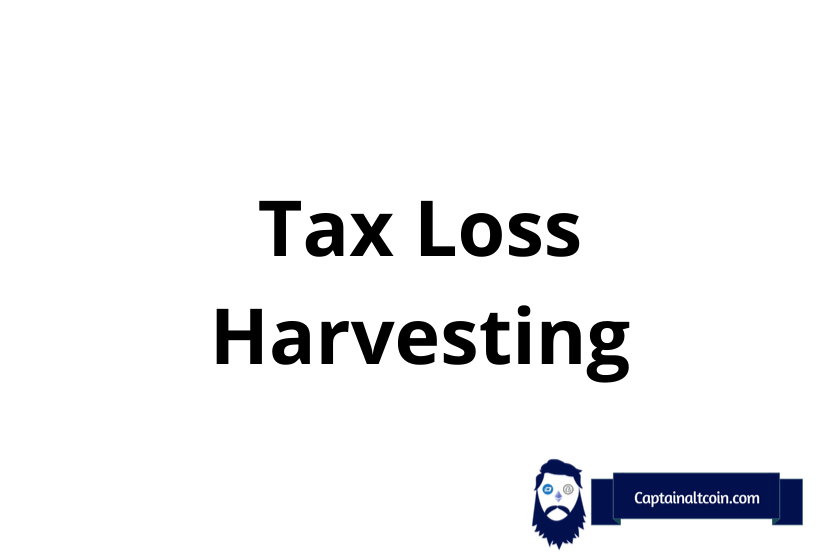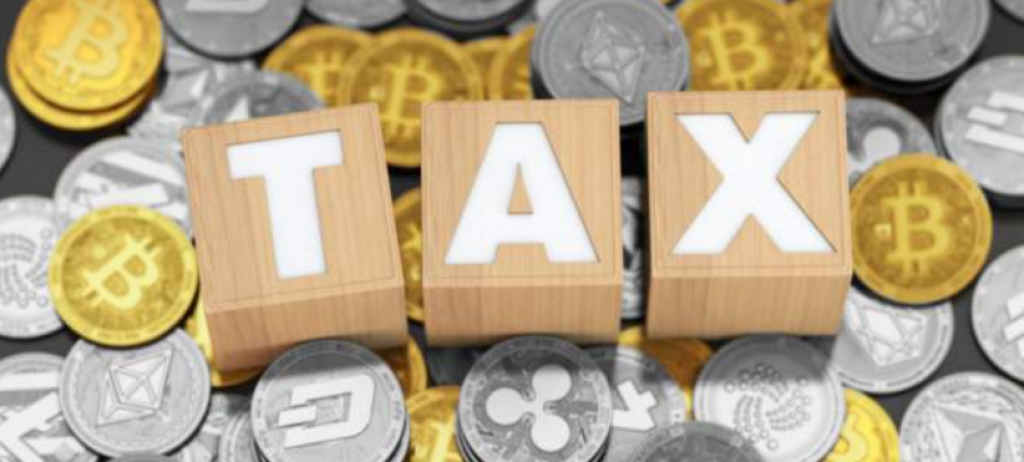
People are assessed for tax individually in the US, making every case unique. However, the process of tax-loss harvesting applies to most people who hold moderate amounts of crypto and pay tax. Disclaimer: This is not tax advice, nor am I a tax lawyer, but tax-loss harvesting is certainly worth considering. Ask your tax accountant/CPA about how it applies to your tax situation.
What you'll learn 👉
What is tax-loss harvesting?
First, we need to understand the difference between realized and unrealized gains and losses. The key difference is that you are not taxed on your crypto unrealized gains/losses. In general, it’s only when you sell that a tax event is triggered. At this exact moment, the gains/losses change from unrealized to realized. Now they can be taxed. That’s it.
Traditionally, we set our losses against our gains to calculate our taxable profit. The more losses we have, the less tax we pay. Clearly, it would be advantageous to generate some convenient losses when it comes time to submit our taxes. I give you, “Tax-Loss Harvesting.”
Take look at all the tokens you hold and see which ones are lower than when you bought them. If you sell these tokens then instantly rebuy at the same price, your position has not changed, but you now have realized losses. These ‘harvested’ losses can be set against your gains to reduce your tax obligation when you submit your Schedule D tax form.
“Aha,” I hear you say, “But then you’ll report a greater profit once the coins appreciate in value, and you’ll have to pay tax next year on higher gains.” There’s an easy answer to this. We always kick the can down the road. It’s the fundamental principle of US economics. Never pay the bills today if you can pay them tomorrow. We could always do the same next year with our underperforming tokens, right?

Let’s look at a working example. 2021 has been a good year for some tokens and a great year for others. I bought the dip in September 2021 and paid $40,000 for 1 BTC that has since increased in value to $63,000. That’s $23,000 of unrealized gains. However, I need to sell it now to buy some crazy dog-based meme-coins, converting it to a realized gain, and triggering the taxable event. In my regular income tax bracket, I pay 25% on short-term capital gains, so now the IRS will be hounding me for $5750 – their cut of my profits.
I also notice that I am still hodling some Chainlink (LINK) which I bought back in May for $42 per coin. It’s still nowhere near its all-time high, but I believe in it as a project and hodl it as a long-term prospect. 7 months later, and my $42,000 investment is now worth only about $32,000, so I have an unrealized loss of $10,000. I sell my LINK and buy it straight back at the same price, triggering a tax event and converting my unrealized loss into a $10,000 realized loss.
I can now subtract the $10,000 realized loss from my $23,000 BTC gain and pay tax on only $13,000. This saves me $2,500 in taxes. NIce!
If something sounds too good to be true then it probably is. So what’s going on here?
Read also:
- Free Crypto Tax Calculators – Calculate Your Bitcoin Taxes For FREE
- Crypto.com Tax Tool Review – Free Tax Calculator by Crypto.com
- Binance Tax Calculators – 3 Steps to Calculate Binance Taxes
- Bitcoin Tax Free Countries – In These Countries You Pay 0% Tax On Your Bitcoin And Crypto
- Best Coinbase Tax Calculator – How To Calculate Your Coinbase Taxes
- How to Avoid Paying Taxes on Crypto (DON’T DO IT)
- Best Cryptocurrency Tax Software
What About the ’30-Day Wash Sale’ Rule?
The only reason the strategy still works is that regulation has not caught up with innovation. It’s very recently that governments have started to take cryptocurrencies seriously and realized the systemic threat they pose. You can’t use the tax-loss farming strategy with stocks and securities anymore, as they are subject to a 30 day Wash Rule to prevent such shenanigans. The SEC decrees that the losses generated when rebuying the stocks or securities within 30 days of their sale are disregarded. It’s like it never happened.
The SEC has not yet managed to get its grubby little regulatory hands on cryptocurrency so this rule doesn’t apply to our digital assets, for now. The IRS considers crypto as property, not a security, so for the moment, we are safe. I remember reading something about a US government proposal to tax unrealized gains in crypto. Hopefully, that was just a bad dream along with my Central Bank Digital Currency recurring nightmare.
Can I realize more losses than I have gains?
This is the best part about it. If you have more realized losses than gains from your crypto dealings, you can offset up to $3,000 against your regular income and thus pay less income tax. In my case, that’s $750 per year that I don’t pay the IRS. The rest of the losses can be stashed away and set against your profit from future years. I believe you have 5 years in which to use your farmed tax losses.
Aren’t losses limited to $3,000 on your regular income tax return?
$3,000 is the amount you can set against your regular income after you have offset your capital gains to zero. The losses must be set against capital gains before you can use them to reduce your regular income up to the maximum of $3,000.
So tax-loss harvesting makes my taxes disappear?
No, not forever, but it delays your taxes for a few years. Even if it’s for a couple of years, it still means you have the money in your portfolio earning a yield and increasing in value. This is much better than the lost opportunity cost of it sitting with the IRS’s, I think you’ll agree.
Continuing with our working example, we might HODL our LINK which we sold and bought back at $32 per coin. Remember, in 2021 we booked a $10,000 realized loss, which discounted our tax bill by $2,500 (25%). It’s now late 2022 and the LINK has exploded to $132, leaving us with an unrealized gain of $100,000. This would be a nice problem to have.
If we want to spend or trade the LINK, we will incur a taxable realized gain of $100,000. What would have happened if we hadn’t farmed the $10,000 loss in 2021? Our gain would be only $100,000 – $10,000 (your previous loss) = $90,000. The tax bill would be $2,500 lower, which is the same amount we underpaid the IRS in the previous year.
We haven’t paid less tax in the long term, but we have held onto our $2,500 for a year. Now imagine what that $2,500 invested in the correct altcoin for a year could do for you!!
When shouldn’t I employ tax-loss harvesting?
This depends on your regular tax rate and the different rates levied against long-term and short-term capital gains. By the way, if you made it this far, you did well. It’s never easy writing a ‘fun’ article about capital gains.
Long-term and short-term capital gains are considered separately. This is important because sub $40k wage earners pay no tax on long-term capital gains. In this situation, it would be foolish to book a long-term capital gains loss when any gains would have been tax-free. Short-term tax-loss farming is still viable but remember; Selling or spending triggers the tax event, and the one-year waiting period for long-term capital gains is reset.
If you intend to book some short-term capital gains losses but you are not intending to hold the crypto for a year after you rebuy it, then any gains you make will be taxed at the short-term capital gains rate. This is typically 20% rather than 15% for long-term capital gains. Rates vary depending on your regular income tax rate, so will differ from case to case. Also, consider if you are likely to jump up or down a tax bracket over the next few years. This can also affect the strategy’s viability as your capital gains tax rates will also change.

It’s a complicated calculation and there are too many variables to consider here. This is why you should hire a CPA/Tax lawyer if you’re dealing with life-changing amounts of money. The consequences of getting it wrong and upsetting the IRS can also be life-changing.
What if I bought my crypto at different prices?
There are IRS-approved costing methods and supporting software that allow you to book losses by selling your most expensive crypto first. As long as you are consistent and archive all your trades, there should be no problem. What you cannot do is average your buy price and use this to calculate your gains/losses.
How do exchange fees affect the strategy?
Fees are an important part of the calculus and it depends on how your exchange fees are charged. If there’s a fixed charge per trade then the proportion you lose to fees diminishes as your trade values increase. Smaller amounts are affected worse to a point where the strategy becomes unprofitable. If it’s a percentage fee, then this does not affect the strategy as much, but people pay higher fees for lower value trades, on average.
This is why it’s important to use an exchange with deep liquidity and a large volume. The spreads should be almost non-existent, and the fees as low as possible.
What if a token continues to fall after I book a loss?
If it keeps dipping you can keep selling and rebuying. Eventually, your lowest sale price will be the calculation point. The exchange fees can get expensive if you do this too often, so calculate when it’s most useful to sell. Decide how much loss you would like to book and target that price.
Can I do this at any time?
You need to execute the strategy to generate a capital loss in the same tax year as your capital gain. The losses can be set against the following years’ gains, but not the previous years’ gains. Generally, make sure you do it before 1st January to capture the current tax year’s opportunities.
Is this likely to change in the foreseeable future?
Yes. There’s no way the government will take this lying down. Nobody knows what will happen, but the most obvious options are these. The SEC/Congress could convince the IRS to consider cryptocurrencies as commodities, rather than property. This would invoke the 30-Day Wash Rule and render the tax-loss farming strategy useless. It’s one of the many reasons why the current SEC vs XRP case is interesting, and why Ripple must win.
The next option is for the IRS to start taxing unrealized gains on crypto. This is absolutely out of the question, ethically, and will force long-term hodlers out of the regulated exchanges and into DeFi, where the government can’t touch them.
Imagine the poor millennial who put 100$ into Shiba only for it to 1000x. This would incur a $20,000 tax bill that she has no cash to pay. It forces her and everyone else to sell, distorting markets and potentially causing the decimation of the Shiba price.

Now she has the $20,000 tax demand and her ability to pay is being whittled away by the very policy that caused the market disruption in the first place. This is potentially one of the most unjust wealth transfers in history and could seriously affect the centralized, regulated crypto markets.
It beggars belief that in the land of the free and the home of the brave that such things are being considered, but there are plans afoot to do just this. Everything considered, I would prefer the wash sale rule to the taxing of unrealized gains, but neither is ideal.
Again, this is what will force peopleto go DeFi, so do it now to avoid your KYC data being used against you in the future.SushiSwap is already under pressure to start collecting KYC data. It won’t be long before all DeFi projects follow suit.
In case you need to do your crypto taxes hassle-free, these tools will be of big help: Koinly, Zenledger, Cointracking, Cryptotrader.tax.







